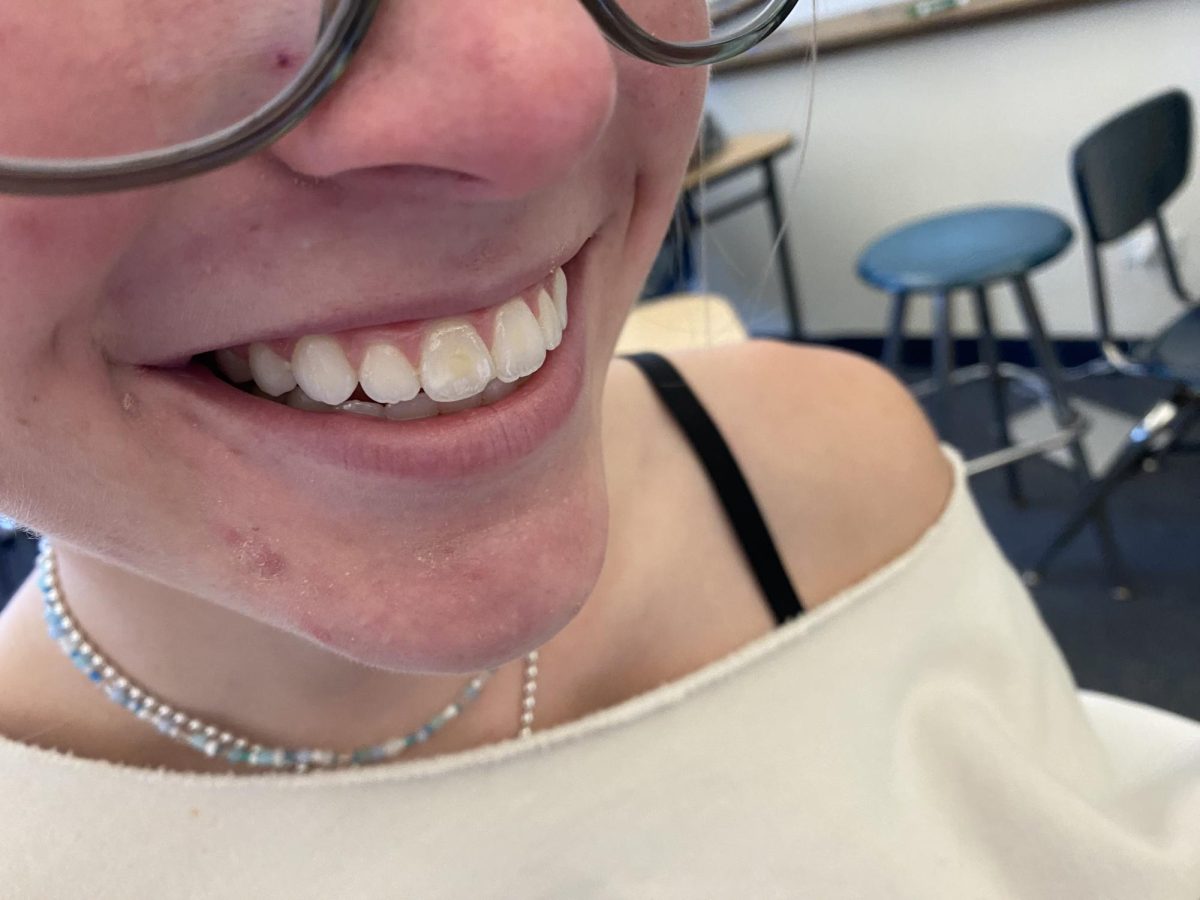Vaping is a six-letter word that has taken younger generations by storm. In the past decade, the “buzz” that vaping provides has been appealing–and addicting–to a younger demographic of middle and high school students. While vaping, smokers use an e-cigarette to heat a liquid of nicotine, various flavorings, a chemical formula called propylene glycol, and other additives into an aerosol that is inhaled. Even though the long-term effects of vaping are uncertain, it is definite that vaping leads to lung and cardiovascular disease. But what about other effects? We dove into the less-talked-about effects of vaping on dental health and hygiene.
To begin our research, we interviewed Dr. Abigail Yardley, DDS, who owns a local dental practice, Scituate Family Dental. The first question we asked Dr. Yardley was whether or not dentists can tell if their patients vape. Dr. Yardley said that although dentists may not know if their patients vape, they can tell if they use nicotine products. Dentists and hygienists see vapers’ tongues, noting that “they complain of losing taste due to the flavorings and heat of the vape.”
When asked specifically about how vaping changes the teeth and gums, Yardley described numerous adverse effects: When propylene glycol (one of the additives in vapes) is heated, it becomes acidic, resulting in the breakdown of enamel, which makes teeth “more chalky and susceptible to decay and stain.” This explains why many vapers have discolored teeth. In addition, vapers tend to grind their teeth. Dr. Yardley said nicotine is a vasoconstrictor, causing “gums and bone to recede, leading to periodontal disease.” This leads to dry mouth, which results in inflammation and bad breath. Consequently, vapers might drink sugary drinks to resolve their dry mouth, which increases the likelihood of cavities.
Continuing our research, we interviewed Rachael Heath, a dental hygienist at Anderson Dentistry in Hingham. Heath was transparent and said more research needs to be done on the effects of vaping, specifically on dental health. According to Heath, one of the biggest concerns with vaping is “the heating up in the mouth that can cause damage to the gums and all the chemicals that can be abrasive to the gums and soft tissues in the mouth.” Many teenagers may not think this is an issue, but the impact of the heat is significant. When asked if vaping affects the immune system, Heath immediately responded, “Absolutely.” She urged students to consider the proximity of the mouth to the brain and the heart. She explained that vaping increases the risk of periodontal disease (advanced gum disease). People with periodontal disease are more likely to develop chronic conditions like diabetes, heart disease, and dementia.
With this information, we asked Heath how awareness could be increased about this issue. She liked the idea of more dental and medical professionals coming into schools to educate students on the harmful effects of vaping. She also feels the “power of saying no” is essential.
Annmarie Galvin, Project Director of Scituate FACTS Coalition, an organization dedicated to engaging the community to reduce teen drinking and substance use, would like to raise awareness about vaping. Galvin said many teens are familiar with the impact of vaping because they are vaping or they know a family member or friend who vapes. To help decrease vaping, Galvin said, “Teenagers could act quickly to help a friend who has started experimenting with vaping.” According to Galvin, teenagers should not hesitate “to get involved and help them choose another way to deal with stress, fit in, or seek a thrill.”
If students know someone addicted to vaping, Galvin suggests many ways to help them stop. Online education and support programs, such as Connect 5, were developed for the youth. This program includes five self-directed online classes to help reduce use. Sessions are completed online, with confidentiality, and a certificate for completion is awarded at the end. In addition, Galvin said there are various texting programs for youth to help them quit vaping:
DITCHJUUL or VAPEFREEMASS to 88709 from The Truth Initiative in partnership with the Massachusetts Department of Public Health
Start my Quit to 855-891-9989 to get help from youth coach specialists trained to help young people by phone or text
